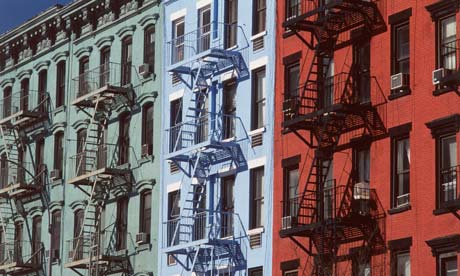
* Update 24 July 2010: Governor David Paterson has signed the bill. The new law will come into effect on 1 May 2011. You can read his statement here
If you like the idea of renting an apartment during a short break in New York, you could be facing some problems if new legislation is pushed through. The controversial proposal could make it illegal to rent an apartment in the city for any period under 30 days.
The "subletting" bill – which has been passed by senators and is currently awaiting final approval from the state governor – has been designed to crack down on illegal hotels that cause problems for permanent residents by depleting the local housing pool and creating noise and security issues. However, it is feared the ban will affect growing online networks, such as AirBnB, Craigslist, Crashpadder and Homeaway, which allow travellers to find short-term accommodation in privately owned properties.
Although the bill is said to contain "appropriate exceptions for roommates and boarders who live or rent in the unit with the permanent occupants", if you are looking to step in while the owner is away, you may only be able to do so if no money changes hands. This means home swapping is permitted, but paying to rent an apartment for private, short-term usage could become illegal.
The bill blames the internet for the rise of illegal hotels, stating that "it is easier than ever to advertise illegal hotel rooms" and "most tourists have no idea they have not made reservations at legitimate hotels until they arrive at their destination". Sites such as AirBnB – which has more than 3,000 properties listed in New York City - maintain they make it very clear that these are residential properties.
Joe Gebbia, president of AirBnB.com, said: "We have received over 300 letters from New Yorkers who depend on renting by the night to make ends meet. As everyone knows, NYC is financially a challenging place to live – especially in a down economy. The consequences of this generalised bill will negatively impact thousands of New Yorkers more than by the small number of 'illegal hotels'."
Many residents argue that they rely on their right to sublet in order to
stave off foreclosure on their homes. For many travellers, renting an apartment or a room in an apartment is the only affordable option in a city where the average hotel room costs $232 a night.
On Wednesday, 500 bed-and-breakfast owners and private homeowners gathered to protest outside City Hall. "Save our sublet" petitions have also been organised, while a band of estate agents specialising in tourist rentals have created a website: protect-vacation-rentals.com.
"This is an extremely complex area," said Michael T Sillerman, a New York-based land use lawyer at Kramer Levin. "We are in an era of mixed use. People want to live in hotels because of service, people want to buy a condo to occupy part of the year and rent for the rest, and people coming to a city may want to stay in a residential setting. The aim of this law is to bring clarity to a very ambitious area, but as often happens, certain groups have been overlooked."
One online commenter wrote: "This industry needs regulation, not eradication." They compared the situation to saying: "I don't like NYC taxi drivers who rig their meters and overcharge passengers. Let's create a law that will make all taxis illegal."
Parisian authorities are also trying to crack down on short-term rentals in a bid to stop people buying pied-à-terres that are used for just few weeks a year and rented for the rest of the time.
Meanwhile, a new London website OneFineStay.com is trying to make the most of luxury central properties that lie empty for a large part of the year by renting them to tourists. Founder Greg Marsh has expressed concern over the New York bill: "By pushing for such wide legislation which criminalises anybody who has paying houseguests city authorities in New York could choose to go after both private individuals and the companies that help them. Would they do so? The issue is they could, and simply that threat may scare off the more respectable firms."

